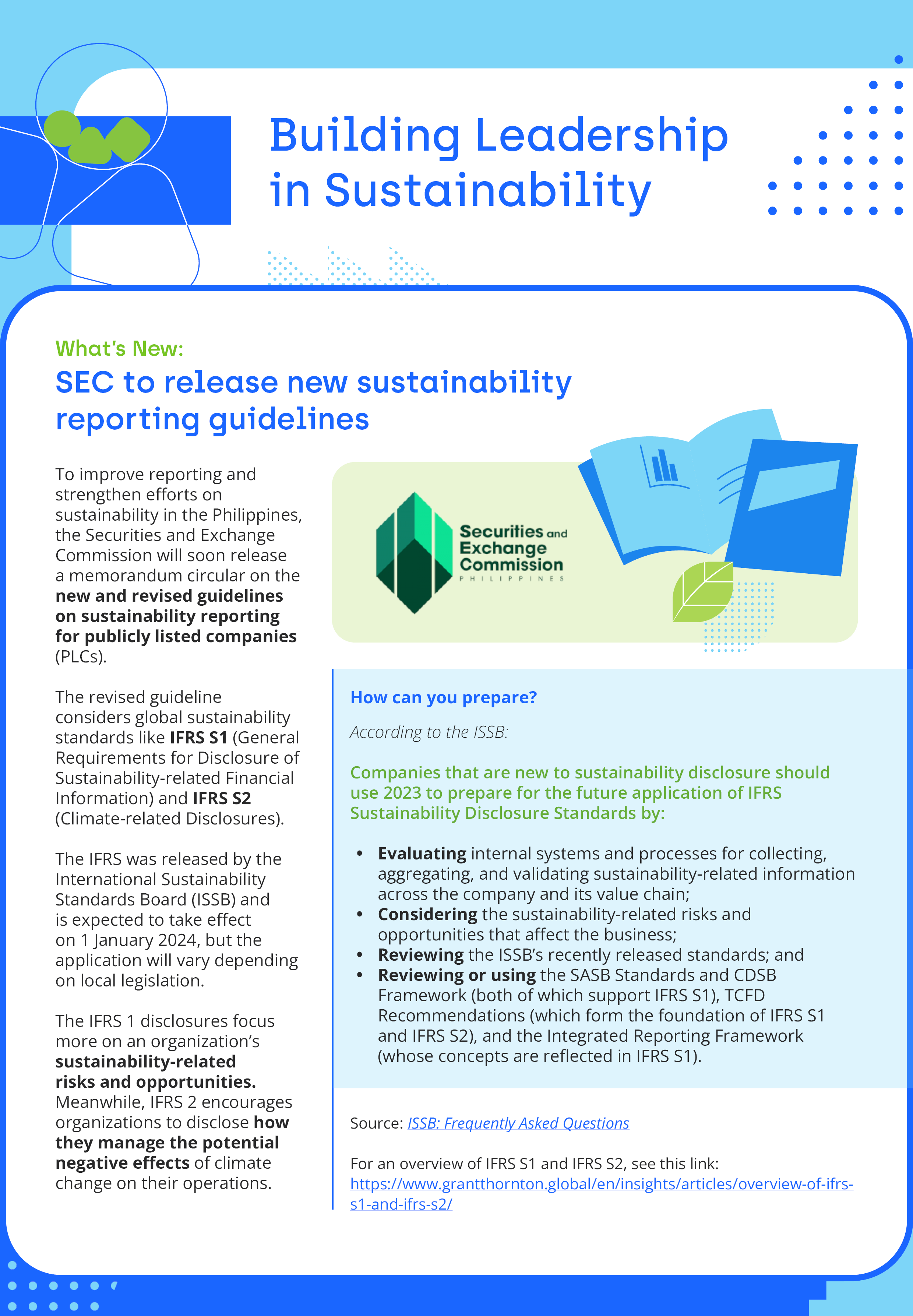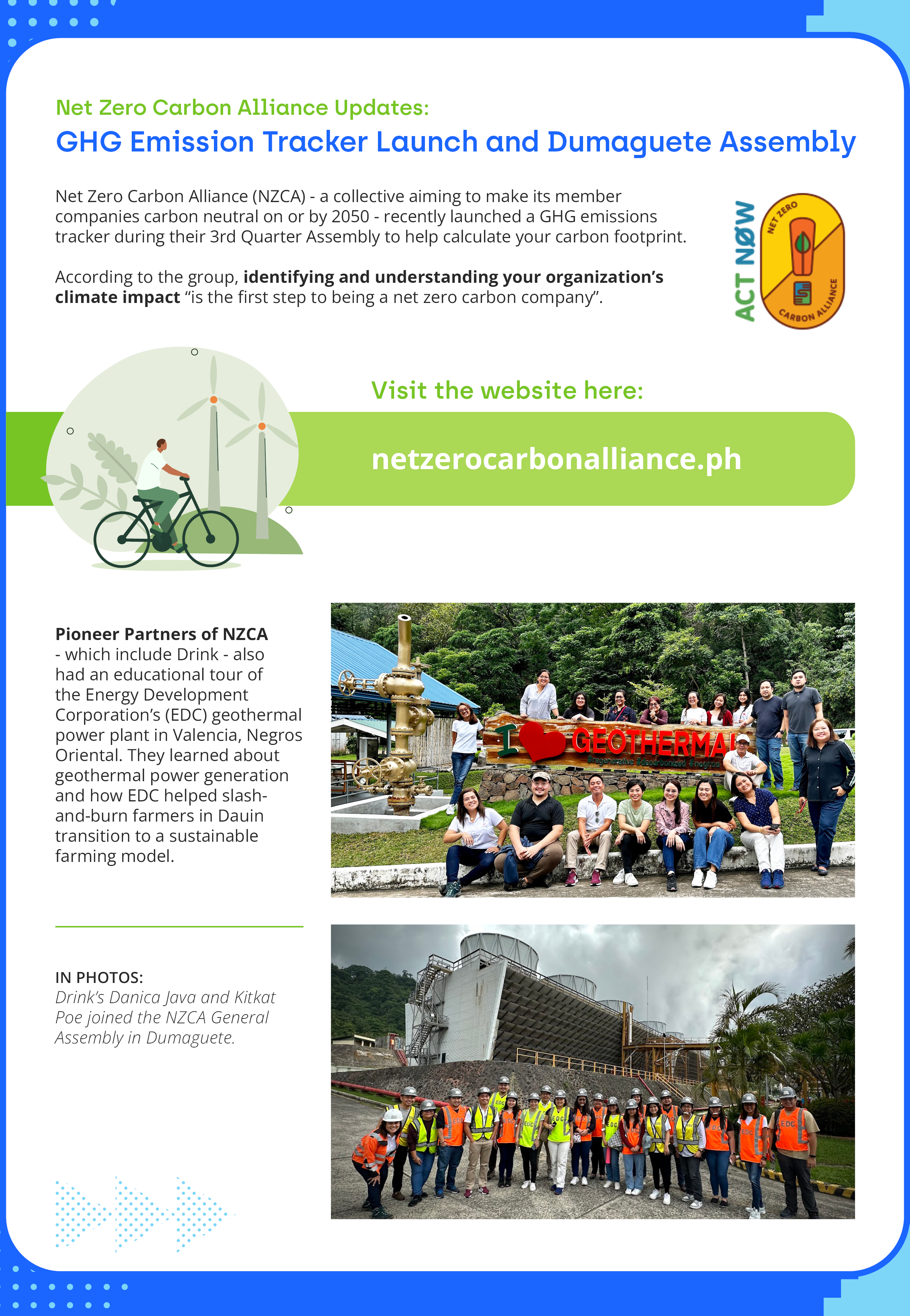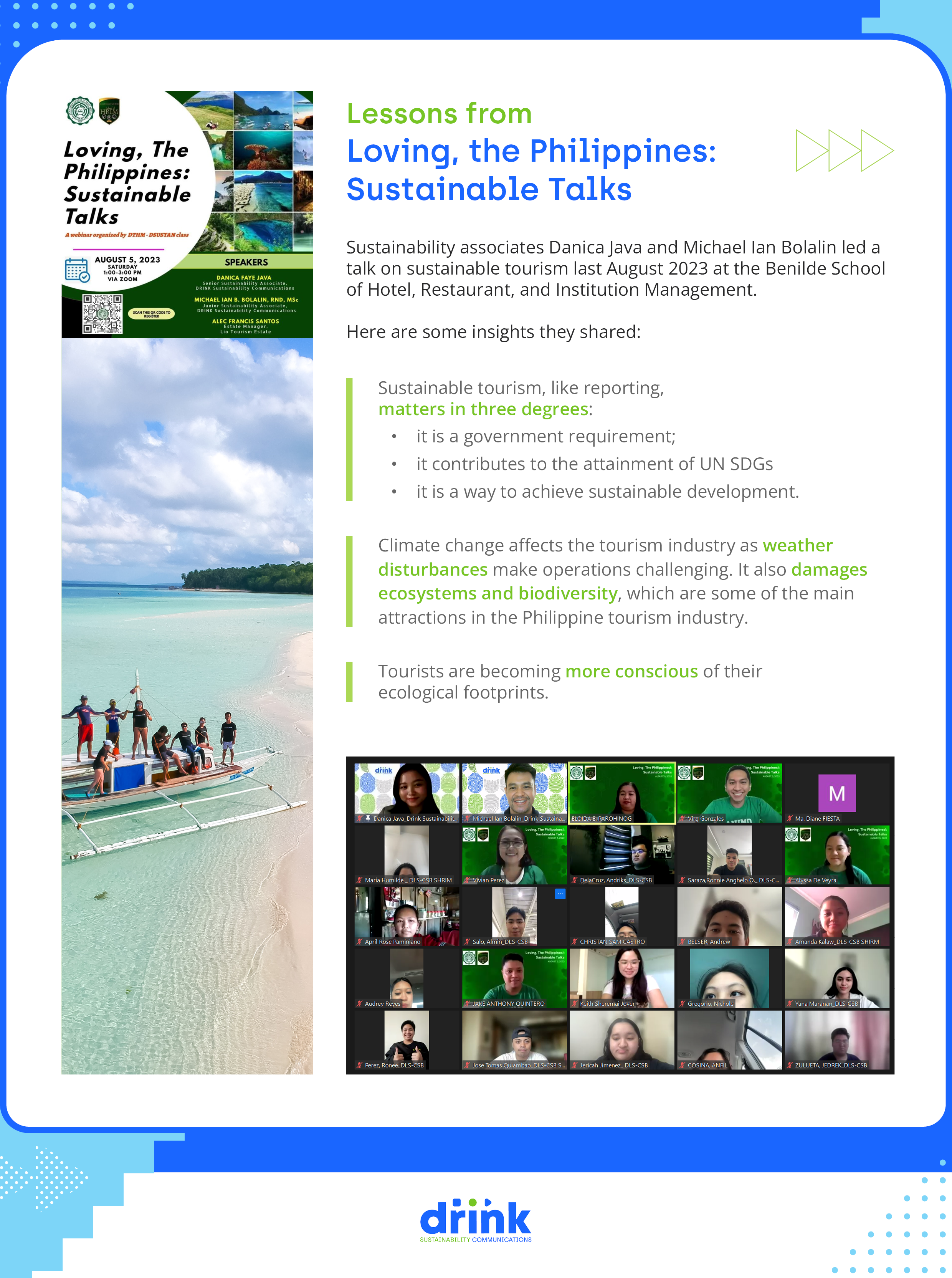What’s New: SEC to release new sustainability reporting guidelines
To improve reporting and strengthen efforts on sustainability in the Philippines, the Securities and Exchange Commission will soon release a memorandum circular on the new and revised guidelines on sustainability reporting for publicly listed companies (PLCs).
The revised guideline considers global sustainability standards like IFRS S1 (General Requirements for Disclosure of Sustainability-related Financial Information) and IFRS S2 (Climate-related Disclosures).
The IFRS was released by the International Sustainability Standards Board (ISSB) and is expected to take effect on 1 January 2024, but the application will vary depending on local legislation.
The IFRS 1 disclosures focus more on an organization’s sustainability-related risks and opportunities. Meanwhile, IFRS 2 encourages organizations to disclose how they manage the potential negative effects of climate change on their operations.

How can you prepare?
According to the ISSB:
Companies that are new to sustainability disclosure should use 2023 to prepare for the future application of IFRS Sustainability Disclosure Standards by:
- Evaluating internal systems and processes for collecting, aggregating, and validating sustainability-related information across the company and its value chain;
- Considering the sustainability-related risks and opportunities that affect the business;
- Reviewing the ISSB’s recently released standards; and
- Reviewing or using the SASB Standards and CDSB Framework (both of which support IFRS S1), TCFD Recommendations (which form the foundation of IFRS S1 and IFRS S2), and the Integrated Reporting Framework (whose concepts are reflected in IFRS S1).
Source: ISSB: Frequently Asked Questions
For an overview of IFRS S1 and IFRS S2, see this link.
Net Zero Carbon Alliance Updates: GHG Emission Tracker Launch and Dumaguete Assembly
Net Zero Carbon Alliance (NZCA) – a collective aiming to make its member companies carbon neutral on or by 2050 – recently launched a GHG emissions tracker during their 3rd Quarter Assembly to help calculate carbon footprint.
According to the group, identifying and understanding your organization’s climate impact “is the first step to being a net zero carbon company”.

Visit the website here.
Pioneer Partners of NZCA which include Drink also had an educational tour of the Energy Development Corporation’s (EDC) geothermal power plant in Valencia, Negros Oriental. They learned about geothermal power generation and how EDC helped slash-and-burn farmers in Dauin transition to a sustainable farming model.
Lessons from Loving, the Philippines: Sustainable Talks
Sustainability associates Danica Java and Michael Ian Bolalin led a talk on sustainable tourism last August 2023 at the Benilde School of Hotel, Restaurant, and Institution Management.

Here are some insights they shared:
- Sustainable tourism, like reporting, matters in three degrees:
- It is a government requirement;
- It contributes to the attainment of UN SDGs;
- It is a way to achieve sustainable development.
- Climate change affects the tourism industry as weather disturbances make operations challenging. It also damages ecosystems and biodiversity, which are some of the main attractions in the Philippine tourism industry.
- Tourists are becoming more conscious of their ecological footprints.


